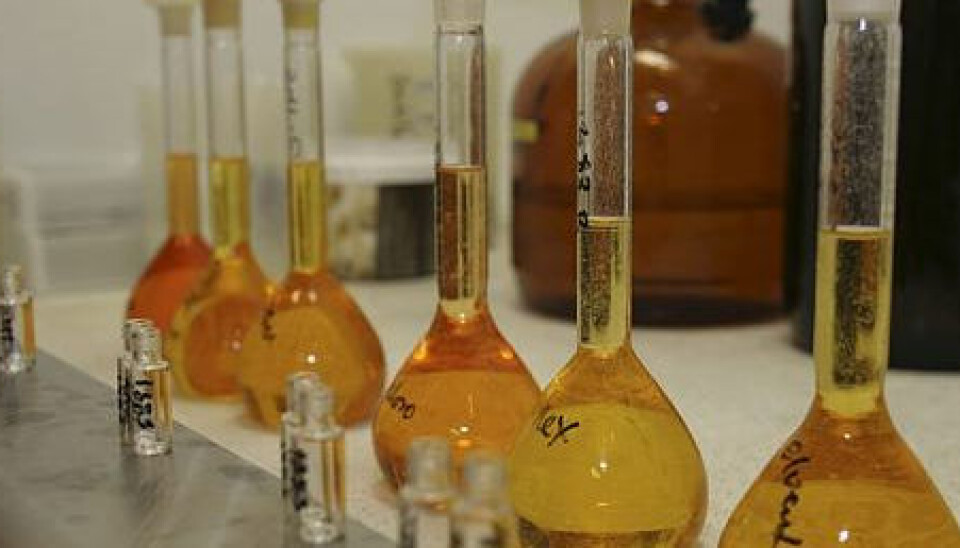This article was produced and financed by Nofima The Norwegian Institute of Food, Fisheries and Aquaculture Research

Controlling the quality of fish oil
New quality analyses give more realistic targets for rancidity in fish oils, which means better quality control opportunities for the industry.
Denne artikkelen er over ti år gammel og kan inneholde utdatert informasjon.
A high-quality fish oil has little taste and it is difficult to tell the difference from a normal cooking oil. In the presence of oxygen and light, the oil will become rancid (oxidise), developing undesirable flavours and odours.
Fish oil is particularly rich in healthy, polyunsaturated omega 3 fatty acids, but this also makes it particularly prone to becoming rancid.
When the polyunsaturated fatty acids become rancid, they create a complex mixture of small molecules that have flavours and odours. This is what gives fish oil its undesirable taste and smell.
Better analysis methods needed
"The current approved standard analysis methods for rancidity, such as peroxide and anisidin values, are not good enough to ensure high quality in fish oils. A whole spectrum of analysis methods must be used to obtain the most complete picture possible of fish oil quality," says research scientist Stine Grimmer.
Researchers in Nofima Lipid Platform, an inter-divisional, strategic research programme at Nofima, have developed alternative quality analyses that measure the content of specific oxidation products in the oils.
The methods have been tested on a number of different fish oil types with different degrees of rancidity and compared with standard analysis methods. The new quality analyses are better able to demonstrate a realistic level of rancidity than the original analysis methods.
Why is it so important to know how rancid a fish oil is?
If a fish oil is rancid, with an undesirable taste and smell, you and I may be less likely to take it. When a capsule of poor quality oil is dissolved in the stomach, it can cause rancid-tasting belching for some time afterwards.
Poor quality fish oil can also mean that the positive health effects of omega 3 fatty acids are not achieved.
"There are indications that rancid oil inhibits the cells' own anti oxidant system and reduces the inflammation-inhibiting effect of omega 3 in cell models," concludes Grimmer.


































